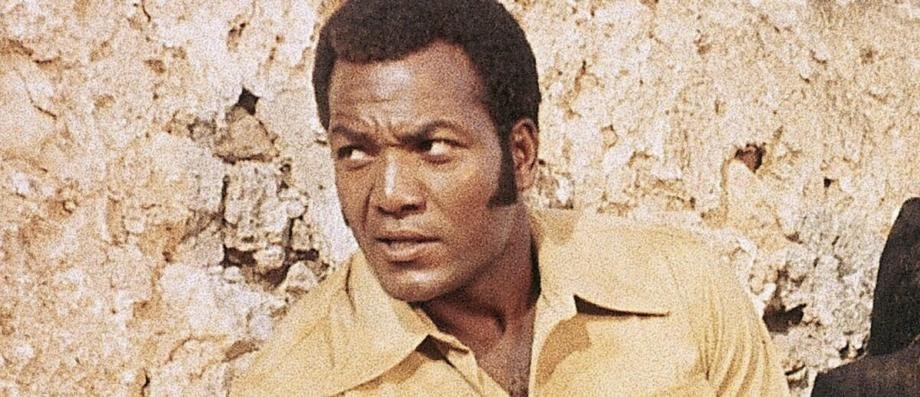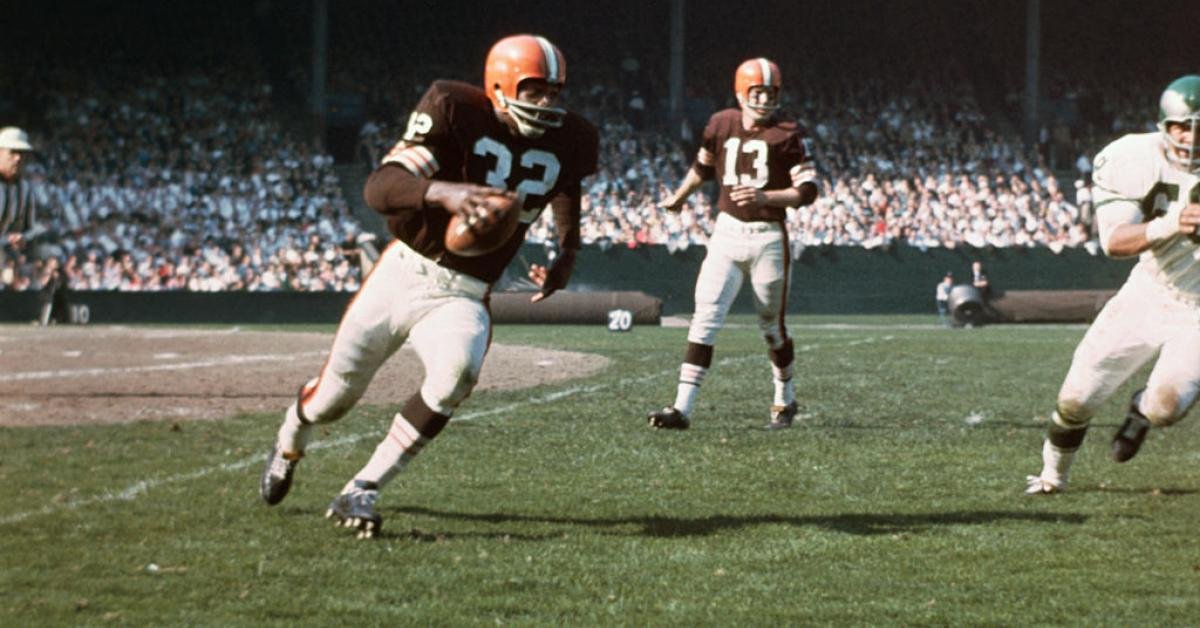The Formidable Superstar, Jim Brown Never Fit Black Or White Stereotypes
“M***er fuckers be hanging off him. Eight of ‘em be begging Jim, ‘Please, Jim, would you fall down, please? We’re on TV, my kids are watching’.” Richard Pryor on NFL players trying to tackle Jim Brown in the 1960s.
The death at 87 of legendary athlete/ film star/ political activist Jim Brown comes just over three months from the death of hockey icon Bobby Hull. Both were alpha males possessed of adonis figures, the essence of vitality in their time. Brown gave up the NFL to become a film star. He went on to champion causes in the black political movement.
Hull went on to sire a HHoF player Brett Hull and work in the cattle industry. He also traded on his stardom. He is still regarded as one of the five most famous Chicago sports figures of all time, up there with Michael Jordan, Dick Butkus, Gayle Sayers and Ernie Banks.
Neither man was without controversy, however. Brown’s name was frequently associated with domestic violence. According to press reports, “On June 9, 1968, Brown, then 32, was booked on suspicion of assault with intent to commit murder against his girlfriend. The arrest occurred when Brown lived in Los Angeles while working as an actor. The woman, a model, was found semiconscious and moaning on a concrete patio 20 feet below the balcony of Brown’s Hollywood apartment.”
There were other incidents with police involvement, many in fact, but you get the drift. Hull, too, had a nasty legacy of domestic assault stemming from incidents involving his first wife. Neither man spent time in jail for the episodes. Hull made some politically insensitive remarks as well.
But, funny thing. When Hull died the Canadian sports press reports dutifully dredged up all his personal business to rebalance the adulation he received in life. As we reported at the time, some people thought that part of his life defined Hull.
But you had to look very hard into the reports of U.S. sports media on Brown’s death this week to find much about his less-attractive side. The praise for his athletic prowess was effusive. Rightly so. But for the liberal sports press that came of age in the 1960s, it was too much to taint Brown’s political legacy by showing his less-flattering past. So they almost universally gave it a pass. In one interview, Bob Costas, the liberal’s liberal in the press box, skirted the issue to dwell on his boyhood memories of Brown.
Wonder why? Those news sources that dared mention it— the New York Times— were lambasted for sullying his reputation with the facts. “It’s the New York Times vs. ESPN for scumbag of the week” is a sampling of the pushback from the sports world.
While playing at Syracuse, Brown was perhaps the greatest lacrosse player in American history before going on to football fame with the Cleveland Browns of the NFL. We can still remember, as Richard Pryor did, the sight of No. 32 dragging defenders along behind him as he set rushing and TD records in a 12-game season— records that are still mostly unassailable. He’s a Top Five NFL player all-time. Colts HOF tight end John Mackey summed up Brown’s style. "He told me, ‘Make sure when anyone tackles you he remembers how much it hurts’.” They did. Vividly.
We can also recall the shocking news that Brown was ditching football in 1966 after nine NFL seasons to star in a Hollywood epic, The Dirty Dozen, with Lee Marvin, John Cassavetes and Donald Sutherland. (He intended to return to the Browns but when they wouldn’t let him miss training camp he retired.) How would he do? We rushed to see the film. Brown was just fine, dragging his fellow cast members after him like NFL players as he took on the Nazis.
He went on to star in 100 Rifles as Hollywood’s first black action star. Other movies followed. When the glamour of films lost its lustre Brown became an icon for the black political movement. He supported Muhammad Ali in his fight to avoid prison for refusing to serve in Viet Nam. He created camps and schools for black children and was a recurring figure at the seminal moments for black empowerment.
But his philosophy was not today’s Marxist #BLM brand. “We've got to get off the emotional stuff and do something that will bring about real change,” he said. “We've got to have industries and commercial enterprises and build our own sustaining economic base. Then we can face white folks man-to-man and we can deal.” He was not easily intimidated.
In 2018, Brown and Kanye West met with President Donald Trump to discuss the state of America. Criticized by the black community for the meeting, Brown said, ”we can't ignore that seat and just call names of the person that's sitting in it". Brown called Trump "accessible", and said that the president was not a racist. The Brown obits in liberal media buried those quotes deep in stories.
Still he scared some folks. Files declassified in 2003 showed that the FBI, the U.S. Secret Service and several police departments had monitored Brown and the Black Economic Union, attempting to smear the group as a source of Communist and radical Muslim extremism. Hillary Clinton would have been proud.
Brown himself was into unapologetic self-improvement as he showed when he went to Pryor’s hospital room after the comedian set himself alight while freebasing. While others soft pedalled their advice Brown made it clear that Pryor had to kick drugs, and that he would help him do so. (As thanks, Pryor later screwed Brown in a film deal that would have brought him millions.
Brown was unrepentant when confronted about his past. “I’m no angel,” he told The (Cleveland) Plain Dealer in 1970. Regarding the assault allegations, he said, “I’ve never been convicted. I’ve just been harassed. I’ve been hit so much I don’t sting any more… I take it and look my accuser in the eye. I don’t look at my shoes when I talk to anybody. I know what I am. I only have to live with myself.”
That he did. The biggest difference between him and Hull was that the critics of the Golden Jet wanted to get tawdry clicks from his life story. With Brown they wanted him to advertise their Woke selves. That’s a huge and crucial difference in this insane world.
Sign up today for Not The Public Broadcaster newsletters. Hot takes/ cool slants on sports and current affairs. Have the latest columns delivered to your mail box. Tell your friends to join, too. Always provocative, always independent. https://share.hsforms.com/16edbhhC3TTKg6jAaRyP7rActsj5
Bruce Dowbiggin @dowbboy is the editor of Not The Public Broadcaster A two-time winner of the Gemini Award as Canada's top television sports broadcaster, he’s a regular contributor to Sirius XM Canada Talks Ch. 167. Inexact Science: The Six Most Compelling Draft Years In NHL History, his new book with his son Evan, was voted the seventh-best professional hockey book of all time by bookauthority.org . His 2004 book Money Players was voted sixth best on the same list, and is available via http://brucedowbigginbooks.ca/book-personalaccount.aspx






